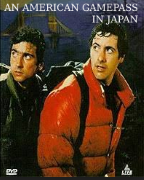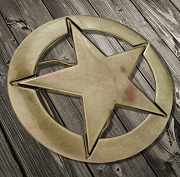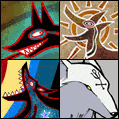|
Lord Frisk posted:I have more than one friend who puts ketchup on goddamn everything. Eggs, potatoes, sandwiches, you name it. Well it seems pretty simple, you start with a base class (eggs) and then add a seasoning (ketchup/sriracha) to suit your personal preference. Then at some point according to Next's design some rear end in a top hat shows up with the entire menu of food at his plate except the eggs and then bitches at you. To add further insult to injury, the only good sauce for eggs is hollandaise but only the place down the street has it so its either eggs with bad sauce or eating alone.
|
|
|
|

|
| # ? Jun 11, 2024 16:17 |
|
Hey, look: more warlord talk. http://community.wizards.com/dndnext/blog/2013/03/14/dd_next_qa:_martial_healing,_fighter_utility,_and_ranger_challenges quote:____________________________________ There's a lot of And martial healing may not be "out" yet, but if you can't bring a downed ally back, it almost might as well be. The second question implies there may be an actual warlord class? I can't parse it.
|
|
|
|
Have Some Flowers! posted:I'd agree that the way combat works in DND (4E and 3.5 especially) lends itself to one player micromanaging others. That doesn't really happen in Call of Cthulhu for instance because things are more nebulous and conceptual to begin with, and everyone's more interested in the story and playing their characters faithfully than sheer combat efficiency. Sometimes botanists drop their gun and run from a fight. Because that's what a botanist would do. And the GM usually plays along. If by "in character moves" you meant things like "Stabbing that guy might be optimal, but I'm going to stab the Big Bad because he's a cock", or "Guys, maybe we shouldn't be killing the king's guards, I'm going to sit this one out" then that's different and anyone who complains about that needs to calm down.
|
|
|
|
quote:However, we want to make sure it works in the larger context of the D&D world. For example, an unconscious character (reduced to 0 hit points) probably wouldn’t be able to benefit from verbal inspiration to keep fighting; without the ability to hear, there’s not much impact from a commander’s inspiring speech (yes, I know, the Hulk can shout Iron Man back to consciousness, but I think that clearly works better as a one-time scene than something that happens every session, even multiple times). I can't loving believe these people. Hey. Hey, you know what other kind of dramatic event tends to happen maybe once per storyline rather than multiple times per session? Casting a god drat magic spell
|
|
|
|
Real talk: I would totally play a barbarian if I could shout people back to consciousness.
|
|
|
|
Remember, people never get slapped or shouted awake in any sort of book, TV show, or movie. The only possible way to wake from unconsciousness is magic.
|
|
|
|
WotC posted:For example, an unconscious character (reduced to 0 hit points) probably wouldn’t be able to benefit from verbal inspiration to keep fighting; without the ability to hear, there’s not much impact from a commander’s inspiring speech (yes, I know, the Hulk can shout Iron Man back to consciousness, but I think that clearly works better as a one-time scene than something that happens every session, even multiple times). So, any kind of inspiration-based hit point recovery probably has the requirement on it that the character be able to hear the person doing the inspiring, which likewise requires the target to be conscious. We might also bring the Charisma of the person doing the inspiring into account—either a Charisma requirement to be inspiring, or (more likely, if I had my guess) a bonus to the amount of hit points recovered based on his or her Charisma modifier. At that point, we’ve used our abstract mechanics to clearly explain what’s happening in the world. Then don't make it solely hearing-based. Next has fairly fluffy mechanics as-is, so just say that in order to use this ability, the target has to be able to sense you or you have to make it so the target can sense you. So normally it's based on the target hearing or seeing you, but if the target is blind/deaf/unconscious you might have to slap them on the back with the butt of your spear or use a helm of telepathy to yell at their brain. Let the players figure it out (plus, this allows for a culture of bee people or whatever who use scent or movement to communicate). This promotes creative problem-solving, "rulings, not rules" and all those other buzzwords that the R&D team loves. Don't chain the game with your own failures of imagination. Why does the "realism" gong only get beaten with martial characters? Casters don't have to go through nearly as much of a song and dance routine.
|
|
|
|
Because a martial dude cutting a mountain in half with a sword is weaboo anime bullshit, but a bearded jackoff disintegrating it with a thoght, sme silly hand gestures and some bat guano is as it should be. (Sorry if that sounded bitter, it's just that the Warlord is a class I really, really love and it depresses me to see it trampled so badly. I mean...it's a good class. For reals. It was really popular and straight up beat every other class in their popularity polls except the Wizard and Fighter, which really says something about how warmly received it was, and then it was gone for these reasons. My interest in Next is entirely gone because of how the Warlord was handled, at this point.)
|
|
|
|
LightWarden posted:Why does the "realism" gong only get beaten with martial characters? Casters don't have to go through nearly as much of a song and dance routine.
|
|
|
|
Splicer posted:If you're dropping your weapon and fleeing mid-combat in 4E (or 3.x, AD&D, OD&D) in any situation other than "OK yeah we're hosed just run" then it's not grognardy to ask if maybe you've misunderstood what kind of game you're playing. D&D isn't a game about Botanists, it's a game about wandering into holes in the grounds and coming out with piles of treasure. If you're trying to play a Cowardly Botanist in any version of D&D then you're playing the wrong system (or playing a reskinned LazyLord in 4E, which is boss). However I do love seeing skill-based or social-based characters like that in D&D, but they weren't really practical in 4E. Characters were defined by combat roles rather than larger party roles like past editions. You were a Striker first, and a dungeoneer/socialite second. Or you were a Controller first, and a historian and librarian second. That's fine because the game was more about combat. I'm sure the combat mechanics and testing got 10x more effort and work than the skill systems. But the way the combat worked in 4E, it was easy for one good player to dictate the actions of others. There were very clear 'best' and 'worst' options because of how systematic the combat was. That's my main problem, and I'm just poking at possible solutions for that. I can rope new players into playing D&D, but I can't get them to keep playing if they're bored during combat or they feel like their actions and consequences are not their own.
|
|
|
|
That WotC article is uncannily close to what I posted this morning. Except stupid.
|
|
|
|
Have Some Flowers! posted:However I do love seeing skill-based or social-based characters like that in D&D, but they weren't really practical in 4E. Saying you couldn't make a skill-based or social-based character in that edition is one of those half-truths people tend to trot out when their experience with the game is limited to reading a PHB. Like unless you want to make a character that explicitly runs counter to the entire genre of fantasy hack and slash like an absolutely pacifistic thief doing a ghost run of the game (in which case, sweet, you're a pair of skill checks, now bolt that onto someone useful to the other people at the table), there's nothing stopping you from making someone who can do the skills they want, or the socializing they want, AND can do something useful in a fight. It's not a question of "-based" what, it's a question of "-as-well-as." Which is a big part of why past threads on Next have talked about how fundamentally flawed the whole "pillars" design is---it's not fun to have big chunks of the session be devoted to stuff your guy isn't into. It's a great idea that you have your rigger and your hacker and your shaman and your street samurai but in play if I'm going to have to make a sandwich the next time the guy next to me wants to hook a turret up to an ATM, I'm going to say, I don't feel like Shadowrun right now.
|
|
|
|
If one of your players is bossing the others around in combat...like actual "No Steve, don't do that, here let me take your characters' turn for you" bossing around...then the problem is that player is a dick and you need to loving talk to him, no "searching for a game solution" antics is going to stop that. 4E does not rely on every character working in perfect harmony like an ant colony, trust me, I've played in plenty of 4E games with characters who didn't know optimized combat tactics from a hole in the ground and the world didn't collapse around us. If all of your players, together, are coordinating on the best way to kill kobolds and poo poo then there's no way you're going to stop that short of holding a gun to their heads and threatening to shoot them if they say more than X words per round, period. This happens in pretty much every game ever. I've seen this happen in FATE. I'm also pretty sure that if you want to make a "skill/social guy" in 4E that it's easily doable with something like a Rogue or Bard, taking the appropriate Utility powers, maybe dabbling in Rituals, and keeping your skills in good shape. You just can't be the skill/social guy who's also completely worthless in combat and has to go and hide or spam one or two little combat tricks every time a fight breaks out. That character will not be as fighty as a Rogue or Bard that focuses on combat Utility powers, but this isn't 3.X where the difference between an optimized character and a non-optimized one was the difference between getting to participate in a fight and getting to do jack poo poo, so this isn't something anyone should be worried about and if one of your players is frothing because someone didn't CharOp their guy then the problem, once again, lies with them.
|
|
|
|
Lord Frisk posted:I have more than one friend who puts ketchup on goddamn everything. Eggs, potatoes, sandwiches, you name it. Alternatively it's just another parallel of edition loyalty; once you're used to the way things taste smothered in ketchup (hint it tastes like really sweet, salty tomato paste) anything that changes that is bad. Sriracha get that condiment outta here it's not a REAL condiment like ketchup, look at the tradition ketchup has. Heinz 57 forever.
|
|
|
|
Rodney posted:For example, an unconscious character (reduced to 0 hit points) probably wouldn’t be able to benefit from verbal inspiration to keep fighting; without the ability to hear, there’s not much impact from a commander’s inspiring speech (yes, I know, the Hulk can shout Iron Man back to consciousness, but I think that clearly works better as a one-time scene than something that happens every session, even multiple times). Or just call it incapacitated. They're not unconscious, they're just in a state where they can't perform useful actions or concentrate on what's going on, until a badass sergeant yells at them to get their poo poo together. Have Some Flowers! posted:However I do love seeing skill-based or social-based characters like that in D&D, but they weren't really practical in 4E. Characters were defined by combat roles rather than larger party roles like past editions. You were a Striker first, and a dungeoneer/socialite second. Or you were a Controller first, and a historian and librarian second. That's fine because the game was more about combat. I'm sure the combat mechanics and testing got 10x more effort and work than the skill systems. You were always defined by your combat role in D&D, because your combat role was the only part with serious mechanics behind it. Older editions just had lousy combat mechanics, so people tended to work around them instead of actually using them. quote:But the way the combat worked in 4E, it was easy for one good player to dictate the actions of others. There were very clear 'best' and 'worst' options because of how systematic the combat was. That's my main problem, and I'm just poking at possible solutions for that. If they don't want to engage with combat, then D&D isn't the right game for them. If they're faced with a life-or-death scenario, in a game designed around skilled combatants that kill monsters to get treasure, and they'd rather roleplay "frightened botanist", and drop their weapon and run away, than actually play the game, then D&D isn't the right game for them. Which is fine. RPGs are not universal. They support specific kinds of gameplay. What your suggesting is that D&D be a different kind of game, one that doesn't focus on combat. But we have other RPGs for that. Call of Cthulhu supports playing a frightened botanist because that's what it's designed for.
|
|
|
|
Chernobyl Peace Prize posted:How so? These bases were largely divorced from one another in 4e, outside of if you wanted to make your CHA-dump fighter a duelist courtier (in which case, why isn't he a scoundrel rogue or a reskinned melee warlock with CHA-primary or a bard or or or). It's true that you couldn't just say "okay, I'm going to only get social abilities" because: everyone had to take attack powers, at the same levels, because everyone was given the same baseline competency (that is to say, any at all) for combat. But it's understandable why few people would sacrifice their effectiveness in combat for more and better skills. The skill system was given little attention or interest compared to the combat system. I can make dozens of unique swordsmen with complex interactions of powers, feats, weapon choice, magic items and so on. And then combat will test that swordsmen in dozens of different and interesting ways. Skill challenges attempted to bridge the gap, but they were still heavily under-developed and misunderstood compared to combat. Chernobyl Peace Prize posted:Saying you couldn't make a skill-based or social-based character in that edition is one of those half-truths people tend to trot out when their experience with the game is limited to reading a PHB. Like unless you want to make a character that explicitly runs counter to the entire genre of fantasy hack and slash like an absolutely pacifistic thief doing a ghost run of the game (in which case, sweet, you're a pair of skill checks, now bolt that onto someone useful to the other people at the table), there's nothing stopping you from making someone who can do the skills they want, or the socializing they want, AND can do something useful in a fight. It's not a question of "-based" what, it's a question of "-as-well-as." But what I've found as a GM is that some players just don't care about the mechanics of combat. To them dice rolling and miniature play aren't interesting compared to social interplay with NPCs and other PCs, things like problem solving, puzzles, story and so on. If one player at the party decides to be a pacifist thief with amazing skills and utility, that should in no way at all hurt the party. And why should it not hurt the party? Because the GM should be tailoring content specifically to the party. Then that player gets to be who they want to be, and maybe the Ranger or Monk in your party who really wants to just roll huge damage dice gets the spotlight for what they wanted to do, too. We had a player once who was obsessed with party logistics, rationing, weight allowances and pack distribution. Normally I don't give a poo poo about it, and neither does anyone else. But it was a big deal to him, so I made sure to challenge him with dilemmas and situations he could work through. And it was great. Kai Tave posted:If one of your players is bossing the others around in combat...like actual "No Steve, don't do that, here let me take your characters' turn for you" bossing around...then the problem is that player is a dick and you need to loving talk to him, no "searching for a game solution" antics is going to stop that. 4E does not rely on every character working in perfect harmony like an ant colony, trust me, I've played in plenty of 4E games with characters who didn't know optimized combat tactics from a hole in the ground and the world didn't collapse around us. The issue isn't even with optimized vs non-optimized play (because the GM should always tailor content to your party). It's the relative level of ability of players at your table. If 2 guys are okay and 3 are clueless, the 2 decent players will make the majority of the decisions. That's just how it works in cooperative games. In a game like D&D where 'being your character' can be just as important as 'beating the game', that hurts. I'm just looking for creative mechanics or ways to address it.
|
|
|
|
eth0.n posted:You were always defined by your combat role in D&D, because your combat role was the only part with serious mechanics behind it. By your argument, D&D probably isn't the right game for a combat-enthused player, either.
|
|
|
|
Have Some Flowers! posted:I don't agree here. Your stat allocation and feat selection made a huge difference as to your combat ability. We may have the exact same powers, but my to-hit bonuses, damage, defenses, durability and options could be much worse than yours if I selected different feats (instead opting for more skills, skill perks and benefits). Obviously that's a choice with pros and cons, and that's a good thing. In my opinion you're pretty drastically overstating the gulf of difference between a CharOp'd 4E character and one that isn't. In 4E you sort of have to really work at it and make some truly obvious "why would you make a Fighter with 8 Str" decisions to make a character that is totally worthless and why are we even bringing this guy along. Like, I think 4E should have just borrowed a page from Gamma World and been like "look, these are your two most important stats, they get [HIGHVALUE] and [OTHERHIGHVALUE]" and saved everybody some time, but the gap between a character that follows CharOp guides obsessively and a character made because some dude wants the Linguist feat and some powers that he thinks are cooler than the sky blue stuff for that level? Is not that big in actual play. Seriously, when people talk about characters being "much worse" in a game like 3.X they're talking about characters that could literally sit around doing nothing and it wouldn't make a difference, when people talk about characters being "much worse" in 4E it usually turns out to be "they do 10% less damage" or something. quote:I didn't say you couldn't make skill or social specialists, I'm just questioning why you'd bother (for the reasons above). Why would you make Skill Guy in any game given that most RPGs (there are rare exceptions) devote most of their rule space to fighting? Yet some people really like to be skill guy and have stuff to do that isn't smashing face. You have a valid criticism that 4E pays short shrift to out of combat stuff compared to the attention it pays combat stuff, and that's definitely a weak point of the game that could (and should) have been done better. On the other hand, there's no less of a reason to make Skill Guy if that's what you want, you aren't hamstringing your character and wasting your time by doing so and the game doesn't slap you down for it, so I would say that if you want to play that sort of character in 4E that you're at least as good off as you are in a lot of other games and far less likely to wind up accidentally gimping yourself than you were in 3.X. Found the slow cooker. Was gonna go grocery shopping last weekend but had to postpone it due to a sudden family emergency room trip, so instead it's been leftovers, scavenging, and some guilty pleasure Chinese lunch specials. Gonna go on Friday and make some motherfucking meatballs and marinara for hoagies, see if that turns out like I remember it used to.
|
|
|
|
Have Some Flowers! posted:I don't agree here. Your stat allocation and feat selection made a huge difference as to your combat ability. We may have the exact same powers, but my to-hit bonuses, damage, defenses, durability and options could be much worse than yours if I selected different feats (instead opting for more skills, skill perks and benefits). Obviously that's a choice with pros and cons, and that's a good thing.
|
|
|
|
Have Some Flowers! posted:I think you're taking a very narrow view of what D&D is to many people. For many it's more than an action movie. It's a movie with scenes of problem solving, political intrigue, social interaction, puzzles, traps, persuasion, twists, emotion and more. Combat's just one part of the equation. People have certainly done all those things while they've sat down at a table with D&D books in front of them. But the game itself provided almost none of that, because its design doesn't support those things. For the most part in D&D, all those things are brought in by the players and GM freewheeling, not by solid mechanics. What you do at a game table while playing an RPG is limitless. What that RPG actually provides you is limited. Your complaint seems to be that 4E provides a lot of support for combat, and relatively limited support for non-combat. But that's how D&D has always been. All those things you list above are just as viable, if not moreso, in 4E compared to previous editions. Should there be RPGs truly designed for things other than combat? Yes! And there are. But there's clearly room in the world for combat-heavy RPGs; why should D&D cease to be one? quote:By your argument, D&D probably isn't the right game for a combat-enthused player, either. How so?
|
|
|
|
Kai Tave posted:when people talk about characters being "much worse" in 4E it usually turns out to be "they do 10% less damage" or something. Don't forget that optimization in 4E isn't just about feats, skills, powers and ability scores. Gear plays a big role as well. Our hypothetical skillguy could be focusing his wealth towards better gear for skills and problem solving too, further widening the gulf. Again, more customization is good, and the fact that he's bad in combat doesn't have to be a bad thing for him or the party. The GM should always be catering content to the actual ability of the party. Splicer posted:Sounds like you don't want to be playing D&D. D&D has always been bad at this. Maybe you should look into FATE? eth0.n posted:But the game itself provided almost none of that, because its design doesn't support those things. For the most part in D&D, all those things are brought in by the players and GM freewheeling, not by solid mechanics. And having some structure can be especially helpful for new players, or GMs with less experience. eth0.n posted:How so? Have Some Flowers! fucked around with this message at 22:04 on Mar 14, 2013 |
|
|
|
eth0.n posted:Your complaint seems to be that 4E provides a lot of support for combat, and relatively limited support for non-combat. But that's how D&D has always been.
|
|
|
|
Have Some Flowers! posted:Do you really think 4E character optimization only nets people about 10% stronger characters in combat? I really think it doesn't loving matter nearly as much as you're making it out to be, and that the whole "if you don't CharOp your dude your character is going to be so incredibly much worse off than everyone else" thing you seem to be suggesting here is overwrought.
|
|
|
|
4e's increased availability of skills, Utility powers and the many attempts at a decent skill challenge system give it so much more non-combat relevance than any other previous edition of Dungeons and Dragons. Just because 4e has the most robust, best-designed combat system of the editions is no reason to ignore all of the things it did (or tried to do) for non-combat as well.Have Some Flowers! posted:Myself and millions of others have enjoyed the non-combat interaction and challenges in D&D. You're not discussing game mechanics. The interactions you're talking about take place outside of the actual design space of Dungeons and Dragons. The whole "but I wanna be the skillguy!" thing is even dumber when applied to 4e because 4e puts you right at Competent In Battle from the start. If you spend all of your feats on non-combat stuff, you're still going to be a useful asset to the party in combat. This owns! It's the only edition of D&D that doesn't punish players for wanting to explore the system outside of fighting monsters.
|
|
|
MadScientistWorking posted:It has but its quite clear that the game mechanics never actually supported playstyles that were actually encouraged in the game. That said, you'd pretty much have to overhaul the system and make it more toolboxy to make this work. The marketing hype indicates this was a goal (modules!), but the current game probably has too many baked in assumptions to do it justice. Not to mention even if they were going with a stripped down core, they'd probably end up pissing off large swaths of their fanbase no matter how they implemented everything. I can't imagine a "Courtly Intrigue" module with anything even remotely "storygamey" like character motivations and social combat mechanics would go over well, for instance.
|
|
|
|
|
Mikan posted:
EDIT: Potentially even more effective given that one of the effects of a sucessful intimate check is to force a monster out of combat. MadScientistWorking fucked around with this message at 22:21 on Mar 14, 2013 |
|
|
|
Piell posted:Remember, people never get slapped or shouted awake in any sort of book, TV show, or movie. The only possible way to wake from unconsciousness is magic. Certainly not in the books, TV shows, and movies these dudes watch.
|
|
|
|
Have Some Flowers! posted:Myself and millions of others have enjoyed the non-combat interaction and challenges in D&D. I don't think it's unreasonable to put attention on the non-combat aspects of the game, because that's a huge draw for many players, even for players (like myself) who also really enjoy the combat. If you've enjoyed non-combat interaction in past D&D, then why does future D&D need to put even more emphasis on that? I would agree that design attention should certainly be paid to non-combat. But it should be to produce a lean, mean system to accompany the core gameplay of D&D. Not to somehow turn it into a game like Call of Cthulhu. quote:Combat could also be accomplished by GM freewheeling (it had to be in early editions), but there's a benefit to having character design choices, options, flavor and challenges provided by the system for it as well. One of the big draws of these games is character building. People enjoy looking through big lists of options and picking who they want to be. If non-character interactions aren't part of that, it's a missed experience. It's not a missed experience. It's a different experience. There's only so much choice space that's appropriate to throw at a player. More mechanical depth for skills means less for combat. quote:I'm assuming there are systems out there that solely focus on combat, if that's the only thing someone cared about. But almost no one is that one-dimensional in their enjoyment of a RPG. They probably wouldn't be playing a RPG, or a tabletop one with other people in that case. D&D is about as combat-focused as it gets in PnP RPGs. And that goes for all editions, in their respective eras. You are vastly exaggerating my position. Just because someone wants to play a combat-focused RPG like D&D doesn't mean they solely care about combat. It just means that's the main gameplay experience they want to focus on. But theres more to the experience of RPGs than playing game mechanics.
|
|
|
|
MadScientistWorking posted:Eberron and Planescape are actually two D&D settings whose best defining characteristics is that they tend to drastically downplay combat if you want to I would not describe either setting this way. Neither really deemphasizes combat. What they do is change the traditional D&D framework around combat.
|
|
|
|
PeterWeller posted:I would not describe either setting this way. Neither really deemphasizes combat. What they do is change the traditional D&D framework around combat. EDIT: Admittedly, this also comes down to how you want to run the setting which is a choice that my players tend to make when I'm DMing. MadScientistWorking fucked around with this message at 22:48 on Mar 14, 2013 |
|
|
|
I honestly think when people complain about the lack of roleplaying and out of combat experience in the newer D&Ds, they are talking about all of the charts and hard rules for our of combat adventuring. The logic going something like this: 1) I want to catch a fish, I roll to do that. 2) There is no chart for what type of fish I catch? Then how does the DM know, he must be making it up whole-cloth. 3) If he is making it up then no matter what I would have done I would have caught the same fish, therefor the DM is railroading me, therefor this game is BAD. Because otherwise I have literally no idea what people could mean by "not enough emphasis on roleplaying". Like, roleplaying is literally just what you as a character say and do while you are not in combat (or even when you are). You can roleplay in literally any system, and in fact you don't even need a system, you can just sit around a table and roleplay. Or like, add characteristics to your Warhammer guys and roleplay using that. You can roleplay any time or place. The only actual "the combat took away from roleplaying" explanation that I have ever read which actually made sense is where a guy was complaining because he played a few sessions of 4E, but they had so much fun with combat that they "forgot" to roleplay! So that was bad!
|
|
|
|
eth0.n posted:D&D is about as combat-focused as it gets in PnP RPGs. And that goes for all editions, in their respective eras. Let me tell you about Phoenix Command...
|
|
|
|
Red_Mage posted:Let me tell you about Phoenix Command... There's definitely games out there that're much more combat rules finicky but it always gets me when people insist that D&D does political intrigue/in-depth skill-focused adventures/anything but combat, really, very well because, seriously, the skill system is a binary pass/fail system and even that is a relatively new innovation beyond silly stuff like BB/LG and thief skills. I mean, okay, you definitely can do some political intrigue game in D&D but it's going to be 99% the group, the system's binary nature by RAW does not lend itself really well to degrees of success. And, in my opinion, a political intrigue game isn't about casting Glibness on yourself, running to the king, and shouting at him that you are the real king and he is an impostor while your party supports you and then having him believe it because you passed your skill check.
|
|
|
|
Guy A. Person posted:I honestly think when people complain about the lack of roleplaying and out of combat experience in the newer D&Ds, they are talking about all of the charts and hard rules for our of combat adventuring. The logic going something like this: Grog. Grog never changes.
|
|
|
|
MadScientistWorking posted:Planescape literally yelled at you to not be murderhobos and more often than not if you did engage in combat the stuff you engaged in combat theoretically couldn't actually die. Eberron can downplay combat but given that its a huge setting it can accomdiate all styles of play. Planescape was as much about stabbing things as any other setting. That you didn't steal their stuff and they just went home instead of dying doesn't change that. The Lady of Pain's lack of stats just reminds you that every other entity in the multiverse does have stats. You can make the same argument about FR, Greyhawk, and Mystara that you're making about Eberron. Aside from Dark Sun, all D&D settings are huge, and all D&D settings, Dark Sun included support multiple play styles. D&D is centered around getting into fights. The poo poo you do before getting into a fight may change from setting to setting, and the amount of poo poo you do before getting into a fight may change from table to table, but in the end, no matter what setting you're playing in and what group you're playing with, you're gonna get into fights.
|
|
|
|
PeterWeller posted:Planescape was as much about stabbing things as any other setting. That you didn't steal their stuff and they just went home instead of dying doesn't change that. The Lady of Pain's lack of stats just reminds you that every other entity in the multiverse does have stats. quote:You can make the same argument about FR, Greyhawk, and Mystara that you're making about Eberron. MadScientistWorking fucked around with this message at 23:27 on Mar 14, 2013 |
|
|
|
Kai Tave posted:I really think it doesn't loving matter nearly as much as you're making it out to be, and that the whole "if you don't CharOp your dude your character is going to be so incredibly much worse off than everyone else" thing you seem to be suggesting here is overwrought. The difference between damage of even optimized characters varies by 100% at Level 1, and that gulf just grows wider with additional levels and options. How do you think it's 10% or so difference between an optimized character and an average character (our SkillGuy) when already optimized characters are varying by 100% or more? Again to recap, I understand that you were arguing that it's okay for all characters in 4E to be combat focused because even an average character with an emphasis on skills is reasonably close to an optimized one in combat. I'm saying that's not true. If you make a SkillGuy in 4E, you will be much worse in combat than an optimized one. I'm also saying that's a good and okay thing. The only times it's too problematic are when the GM isn't tailoring content to the ability of the total party, when the GM can't provide challenges to some party members without murdering or ignoring others, when the experienced players resent the newer/non-combat ones from holding them back, or when the experienced players start to dictate the actions of the newer ones in combat. Those are legit concerns because they happen all the time at the gaming table. eth0.n posted:It's not a missed experience. It's a different experience. There's only so much choice space that's appropriate to throw at a player. More mechanical depth for skills means less for combat. I would just be interested to see how newer players respond, as they often don't know what their options are in a situation. The 4E power system makes a player's options in combat fairly clear, but it takes more trial, error and experience with the skill system.
|
|
|
|
Have Some Flowers! posted:Take a look at the list of optimized characters here - http://community.wizards.com/go/thread/view/75882/28872281/DPR_King_Candidates_3.0.
|
|
|
|
Have Some Flowers! posted:The difference between damage of even optimized characters varies by 100% at Level 1, and that gulf just grows wider with additional levels and options. How do you think it's 10% or so difference between an optimized character and an average character (our SkillGuy) when already optimized characters are varying by 100% or more? Jesus loving Christ. No, you don't understand what I'm saying. What I'm saying is that CharOp doesn't loving matter, that you can play whatever you goddamn well want (except maybe Binders and poo poo like that) and it doesn't matter except to people who sperg out about CharOp. Goddamn, we play with someone who uses an OAssasin which is like CharOp wolfsbane and it doesn't matter, it doesn't matter that they spent a feat on Skill Focus and a Utility power slot to take a Bluff skill power with 0 combat applicability. It does. Not. Matter. "But but but you'll be worse in combat!" Yes, only it doesn't matter because the CharOp guys won't be snapping their fingers and one-shotting the fight while everyone else wonders why they didn't just stay home and the non CharOpped characters will still be contributing in meaningful fashions beyond "loot caddy and witness to the CharOppers awesomeness." If your problem is you feel like you have to dump every bit of your 4E character into making them a pure murder-machine or you're FALLING BEHIND THE CURVE COFFEE IS FOR CLOSERS then the problem isn't the game, it's you, stop being so goddamn uptight and make the character you want. Thank you, now I have to go wash the shame of getting angry about elfgames off of me. Edit: Look, the point is that 4E is not "CharOp or die," it isn't built around all CharOp all the time unless the GM is purposely throwing nothing but Level+5 fights at the group all the time like it's Lair Assault night at the Crusty Goblin. 4E does not assume you are CharOpping the poo poo out of everything, "minimum combat competence" is built in at a practically idiot-proof level so that you don't have to worry about that. There is no "oh no I accidentally took Linguist and Toughness and now my character is ruined forever" poo poo to worry about here, and if your Rogue or Bard is spending a lot of feats and powers on out-of-combat stuff then that's fine because as long as you have your +X gear at the right levels (or just use inherent bonuses, gently caress magic items) then you cannot dip below a certain threshold of effectiveness unless you either deliberately go out of your way to handicap yourself or you play like a moron. Kai Tave fucked around with this message at 23:24 on Mar 14, 2013 |
|
|
|

|
| # ? Jun 11, 2024 16:17 |
|
Lord Frisk posted:I have more than one friend who puts ketchup on goddamn everything. Eggs, potatoes, sandwiches, you name it. I'm sorry, but ketchup has been completely and objectively rendered obsolete by the invention of mixing Sriracha with ketchup. I will stand my ground on this issue.
|
|
|

































